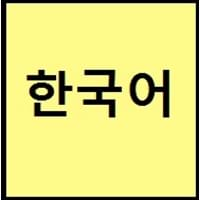Swahili vs Korean
- Swahili language has borrowed many words from Arabic language.
- The oldest written scripts in swahili language were found in 18th century.
- Korean has borrowed words from English and Chinese.
- Korean has two counting systems. First, is based on Chinese characters and numbers are similar to Chinese numbers, and second counting system is from words unique to Korea.
Swahili and Korean Language History
Comparison of Swahili vs Korean language history gives us differences between origin of Swahili and Korean language. History of Swahili language states that this language originated in 6th century whereas history of Korean language states that this language originated in Before 1st century. Family of the language also forms a part of history of that language. More on language families of these languages can be found out on Swahili and Korean Language History.
Swahili and Korean Greetings
People around the world use different languages to interact with each other. Even if we cannot communicate fluently in any language, it will always be beneficial to know about some of the common greetings or phrases from that language. This is where Swahili and Korean greetings helps you to understand basic phrases in Swahili and Korean language. Swahili word for "Hello" is Habari or Korean word for "Thank You" is 감사합니다 (gamsahabnida). Find more of such common Swahili Greetings and Korean Greetings. These greetings will help you to be more confident when conversing with natives that speak these languages.
Swahili vs Korean Difficulty
The Swahili vs Korean difficulty level basically depends on the number of Swahili Alphabets and Korean Alphabets. Also the number of vowels and consonants in the language plays an important role in deciding the difficulty level of that language. The important points to be considered when we compare Swahili and Korean are the origin, speaking countries, language family, different greetings, speaking population of these languages. Want to know in Swahili and Korean, which language is harder to learn? Time required to learn Swahili is 36 weeks while to learn Korean time required is 88 weeks.





